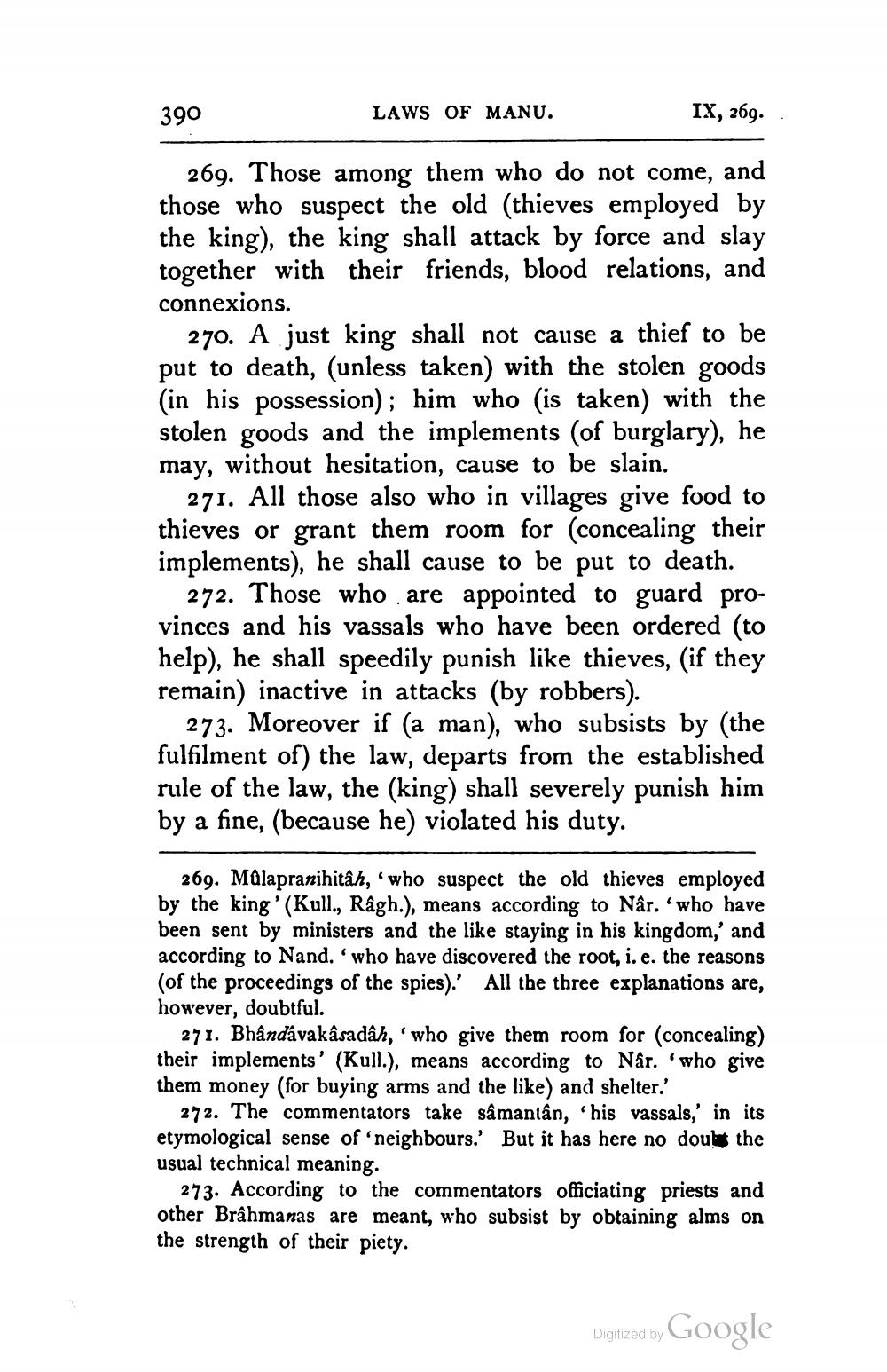________________
390
LAWS OF MANU.
IX, 269.
269. Those among them who do not come, and those who suspect the old (thieves employed by the king), the king shall attack by force and slay together with their friends, blood relations, and connexions.
270. A just king shall not cause a thief to be put to death, (unless taken) with the stolen goods (in his possession); him who is taken) with the stolen goods and the implements (of burglary), he may, without hesitation, cause to be slain.
271. All those also who in villages give food to thieves or grant them room for (concealing their implements), he shall cause to be put to death.
272. Those who are appointed to guard provinces and his vassals who have been ordered (to help), he shall speedily punish like thieves, (if they remain) inactive in attacks (by robbers).
273. Moreover if (a man), who subsists by (the fulfilment of) the law, departs from the established rule of the law, the (king) shall severely punish him by a fine, (because he) violated his duty.
269. MQlapranihitäh, who suspect the old thieves employed by the king' (Kull., Ragh.), means according to Nâr. 'who have been sent by ministers and the like staying in his kingdom,' and according to Nand.' who have discovered the root, i.e. the reasons (of the proceedings of the spies).' All the three explanations are, however, doubtful.
271. Bhândâvakâsadâh, who give them room for (concealing) their implements' (Kull.), means according to Når. 'who give them money (for buying arms and the like) and shelter.'
272. The commentators take sâmantân, his vassals,' in its etymological sense of neighbours.' But it has here no doubt the usual technical meaning.
273. According to the commentators officiating priests and other Brâhmanas are meant, who subsist by obtaining alms on the strength of their piety.
Digitized by Google




